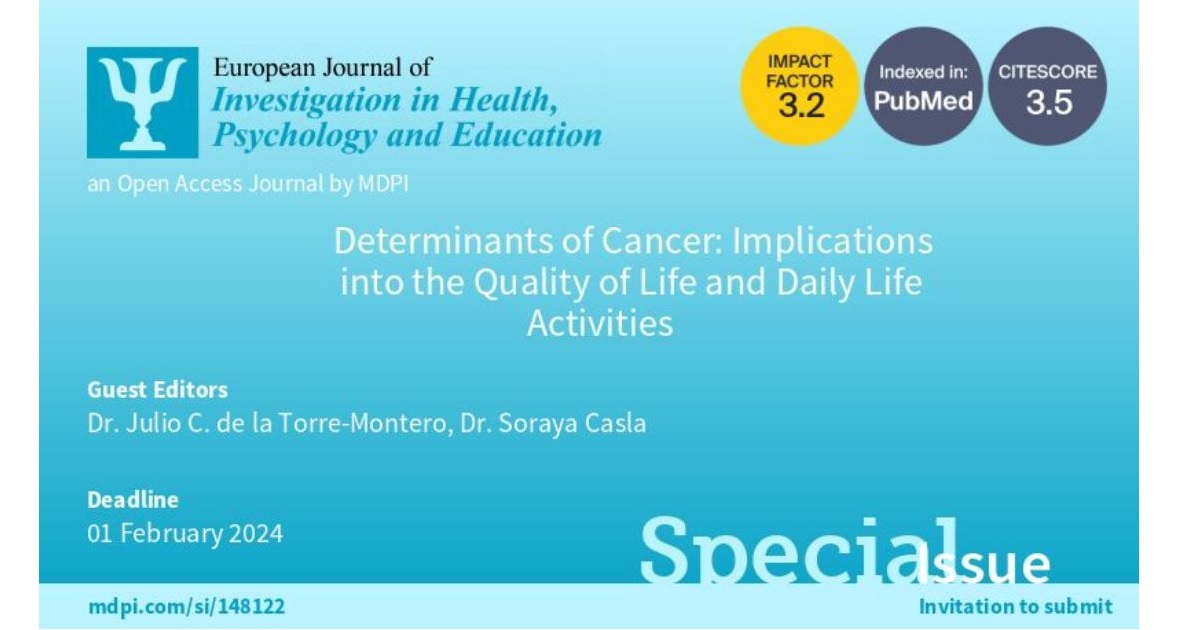Determinants of Cancer: Implications into the Quality of Life and Daily Life Activities
A special issue of European Journal of Investigation in Health, Psychology and Education (ISSN 2254-9625).
Deadline for manuscript submissions: closed (1 February 2024) | Viewed by 2018

Special Issue Editors
Interests: clinical research and evidence-based practice; clinical trials; wellbeing; palliative care; coping strategies; patient and professional engagement; clinical nursing; nursing education; advanced practice nursing; community cares
Special Issues, Collections and Topics in MDPI journals
Interests: cancer and exercise; health and exercise; functional rehabilitation; education
Special Issue Information
Dear Colleagues,
The determinants of health involved in prevention and those involved in the follow-up of cancer patients are key to determining aspects of quality of life and the ability of cancer patients to carry out the various activities of daily life.
From the point of view of prevention, acting on three principal factors—toxic habits, diet, and physical activity, and many more to avoid the development of an oncological diagnosis is essential.
This call for papers is based on these two pillars: research that deals with the development of prevention programs and that is focused on these three management examples, and research that works actively in the management of the patient concerning implementing and improving their quality of life, as well as improving their ability to carry out daily life activities.
Dr. Julio C. de la Torre-Montero
Dr. Soraya Casla
Guest Editors
Manuscript Submission Information
Manuscripts should be submitted online at www.mdpi.com by registering and logging in to this website. Once you are registered, click here to go to the submission form. Manuscripts can be submitted until the deadline. All submissions that pass pre-check are peer-reviewed. Accepted papers will be published continuously in the journal (as soon as accepted) and will be listed together on the special issue website. Research articles, review articles as well as short communications are invited. For planned papers, a title and short abstract (about 100 words) can be sent to the Editorial Office for announcement on this website.
Submitted manuscripts should not have been published previously, nor be under consideration for publication elsewhere (except conference proceedings papers). All manuscripts are thoroughly refereed through a single-blind peer-review process. A guide for authors and other relevant information for submission of manuscripts is available on the Instructions for Authors page. European Journal of Investigation in Health, Psychology and Education is an international peer-reviewed open access monthly journal published by MDPI.
Please visit the Instructions for Authors page before submitting a manuscript. The Article Processing Charge (APC) for publication in this open access journal is 1400 CHF (Swiss Francs). Submitted papers should be well formatted and use good English. Authors may use MDPI's English editing service prior to publication or during author revisions.
Keywords
- health
- cancer
- quality of life
- daily activities
- lifestyles







